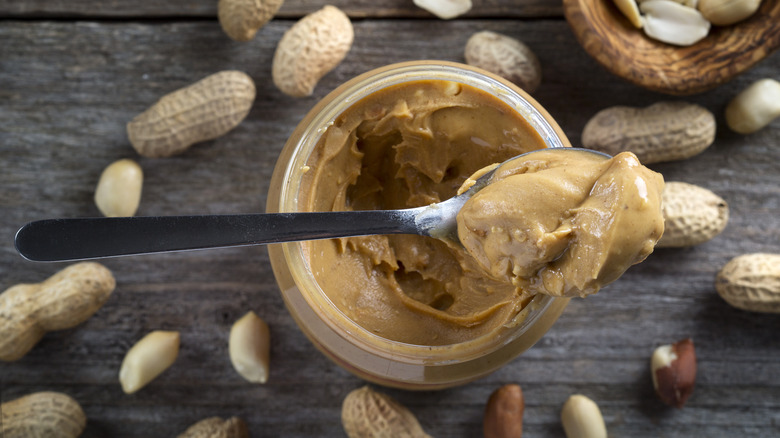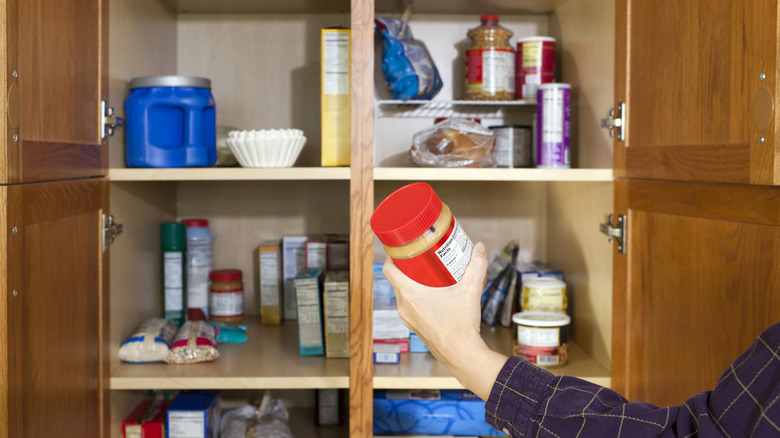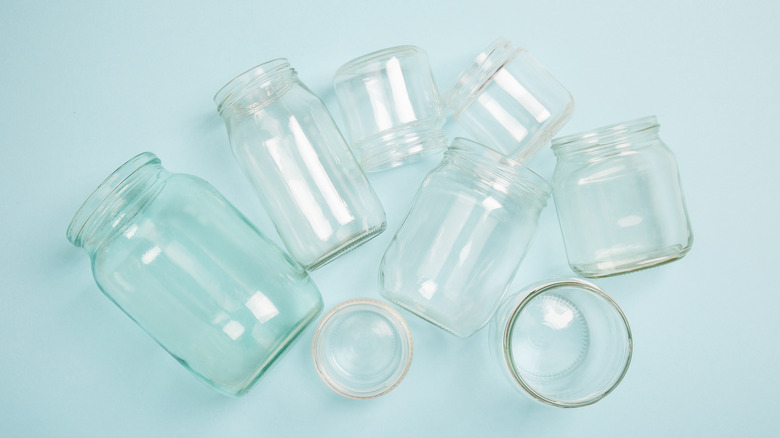Does Peanut Butter Expire?
Peanut butter has assumed an air of immortality in the time since John Harvey Kellogg, of cereal fame, first patented jars of it in 1895, but despite its timeless appeal, peanut butter doesn't last forever. Peanuts, like most foods, get their start on a farm. The United States is the world's fourth largest peanut producer, and most peanut butter gets its start in the 13 southern states that make up what is known as the Peanut Belt, according to the National Peanut Board.
The lifetime of peanut butter once jarred depends in part on whether or not it is combined with other ingredients. Peanut butter that is healthiest for your body and healthiest for the planet contains only peanuts and sometimes salt. However, this kind of natural peanut butter has a shorter shelf life than a jar of peanut butter containing sugar, palm oil, and other ingredients that act as preservatives.
How to safely store peanut butter
As a rule of thumb, a jar of peanut butter that has not been opened can be safely stored in a pantry for six to nine months, while an open jar of peanut butter should be consumed within three months. Once you have taken that first spoonful of peanut butter from the jar, you can prolong its shelf life by storing it in the refrigerator, where it will remain safe for up to nine months.
Wondering why it is that peanut butter goes bad? Peanut butter — which is actually made of legumes, like peas and lentils — unlike actual nut butter, contains high amounts of unsaturated fat. This kind of fat is considered beneficial for your health, according to Harvard School of Public Health, but it quickly goes rancid under certain conditions, including exposure to air, light, and high temperatures. When peanut butter has gone rancid, the flavor will become unpleasant and consuming it may cause stomach problems. Storing your peanut butter in the cool, dark, stable space of your refrigerator extends the time before its expiration.
How to upcycle and recycle your empty peanut butter jar
Think you're finished with a jar of peanut butter? Think again. Make the most of all that good sticky stuff: use a nearly empty jar of peanut butter to make noodles. By adding hot water or broth to the jar and shaking it into a sauce, you can get a little extra flavor out of it for another meal.
Afterward, make sure to take the proper steps to recycle your peanut butter jar. First, use a narrow spatula to scrape out any remaining peanut butter. Fill the jar halfway with hot water and a little dish soap, then shake it for twenty seconds or so. Finally, allow it to dry before placing the jar and lid separately into your recycling bin. This process works for both plastic and glass jars. If you do not do this, it's not just your jar that may not be recycled — any other materials contaminated by peanut oil may also be diverted to a landfill.



